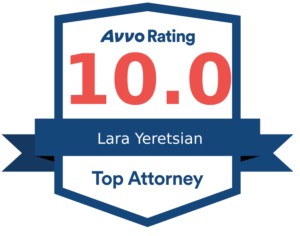When it comes to corporate operations the president or chief officer can be convicted of a crime he or she did not commit or even know about based on precedence.
How is this possible?
This is possible because it is based on the RCO or Responsible Corporate Officer legal doctrine. Also known as the responsible relation doctrine, this doctrine states that corporate officers are basically “responsible” for knowing (and by extension accountable for) what is going on in the corporation. In RCO cases the jury is instructed to presume that the officers are aware and, based on this presumption, the officer or officers can be held accountable.
The case history
Two U.S. Supreme Court cases bear this out: United States v. Dotterweich (1943) and United States v Park (1975).
In the Dotterweich case the president and general manager of a pharmaceuticals company was found guilty of violating the Food, Drug and Cosmetic Act by shipping pharmaceuticals that were substandard.
In the Park case Acme Markets, a large national food store chain, was charged with violating the Federal Food Drug and Cosmetic Act. The violations were based on the company’s Philadelphia warehouse being unsanitary. The warehouse, which the company owned and stored food product in, was deemed unsanitary because it was infested with rodents.
John R. Park, Acme Markets company president, was also charged. As a defendant he claimed he had delegated the responsibility of clean up of the warehouses to his subordinates. The judge however ruled that Park had “a responsible relationship to the issue” and was therefore guilty.
The court of appeals
The court of appeals reversed this finding stating that the defendant could not be found guilty in the absence of “wrongful action” on his part.
The question was asked during the appeal that if the system of sanitation did not work, then whose responsibility was it to change it. The answer was that it was Park’s responsibility to ensure the system was working and if it was not then to change it (standard of care). What helped Park’s case was that the court recognized that the instructions given to the jury in the initial trial (based on the Dotterweich case) did not conform to contemporary court standards. It was also brought up that the word “responsibility” meant whatever the jury decided it meant. Burger gave the opinion of the court Douglas, Brennan, White, Blackmun and Rehnquist joined. Steward dissented and Marshal and Powell joined.
Understanding presumption
As stated above in RCO cases there is a presumption that the company officer knows, or should know, all that is happening within the corporation as he or she is in charge of the affairs (and responsible for) the business.
However, there are two facets to the word presumption in both common law and civil law. One is that a presumption (a logical legal inference based on the evidence), is a rebuttable presumption and can be proved to be false by someone coming forward and proving it to be false. For example, there is a presumption of innocence in criminal cases. Hence the phrase, “innocent until proven guilty.”
The second type of presumption is a conclusive presumption (or an absolute or irrebuttable presumption) and must be accepted without any chance for rebuttal. For example, in the United States any child under seven years old is conclusively presumed to be unable to commit a felony.




